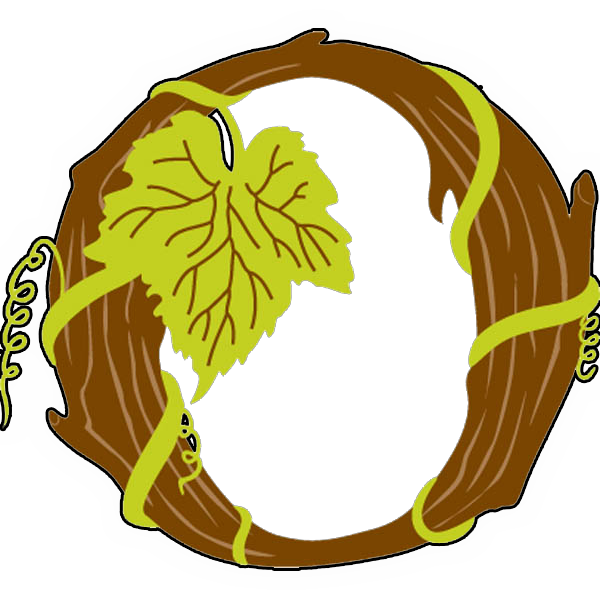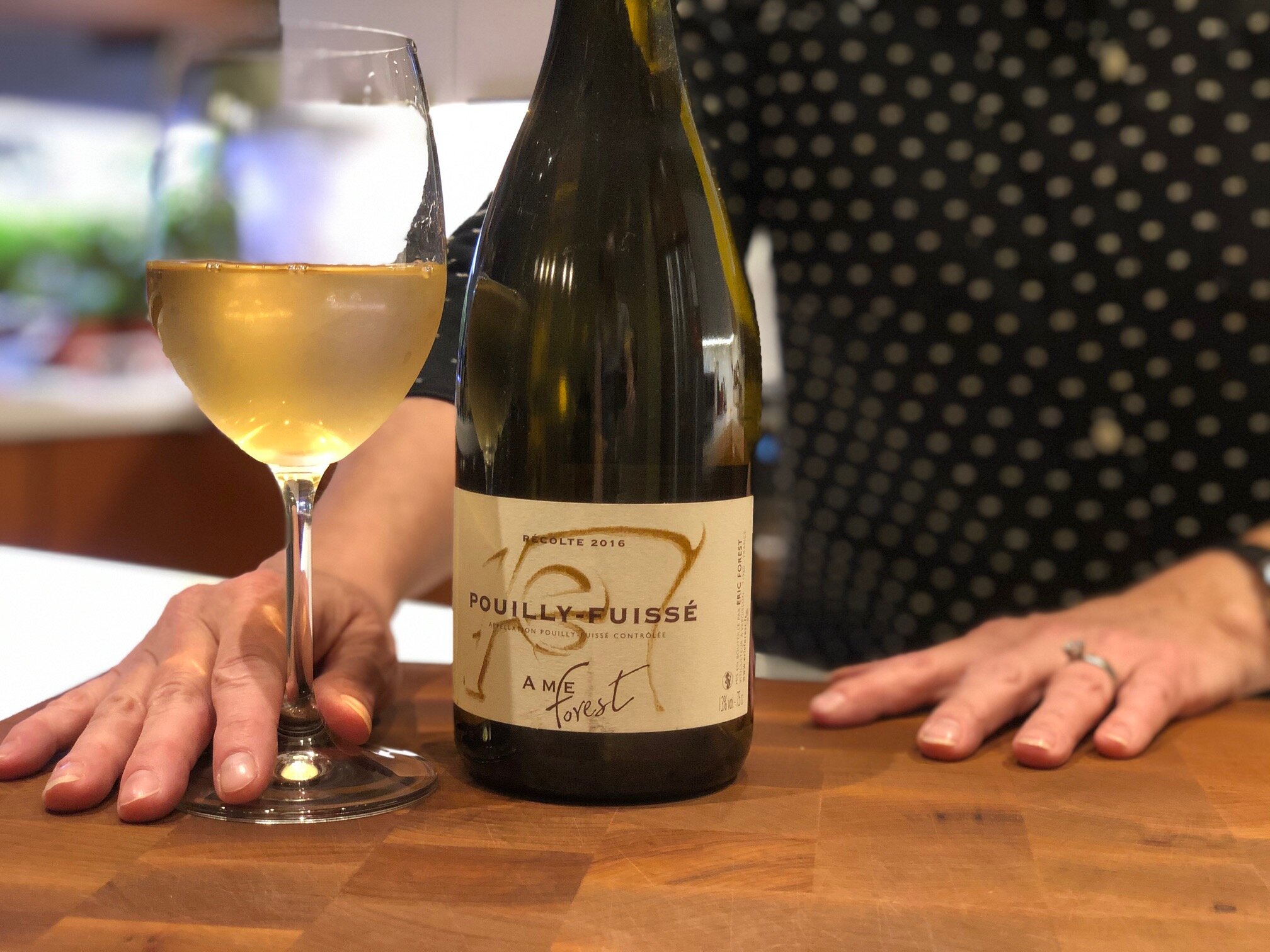Bourgogne, France
Domaine Eric Forest
As young vigneron Eric Forest inherited not only the prized family vineyards but the singular dedication of eight generations of Macon growers. In the cellar, he trained with the Macon legend Jean-Marie Guffens. He currently has 9 hectares in Pouilly-Fuissé, St-Veran and Macon-Vergisson. Al the vineyards are farmed organically and biodynamically. The vineyard for the cuvèe AME were planted by his grandfather in 1963. The plot of Les Crays was planted between 1930 and 1966. He has a “hands-off” style of winemaking, preferring to let time and gravity transform the wines. The wines are fermented in old barrique and then rest quietly on their lees in newer barrels as with an occasional batonage until they are ready to be bottled by hand.
Pouilly- Fuissé - AME
Pouilly- Fuissé - Les Crays
Domaine de la Monette
Although it hadn’t been a producing wine estate in a decade, the Domaine de la Monette still had a couple of acres attached alongside the old houses. It got a second lease on its viticultural life when an enterprising Dutch couple, Roelof Ligtmans and Marlin Stein purchased the estate in 2006. They are the sort of people who seem to make a success on whatever they train their sights. They went to oenology school while rebuilding the winery and rehabilitating the vines. Along the way, they bought a couple more vineyards that had by luck come for sale and a few years later, introduced their first releases of Mercurey. We are thrilled to have been introduced early to the Ligtmans and their terrific wines. From the beginning Roelof has made a practice of completely organic viticulture and all the vineyards were certified as of 2013. The wines are welcoming with their in-tune expressions of Burgundy.
Bourgogne Rouge - Sur le Château
Mercurey Rouge - Les Chavances
Mercurey Rouge - Le Saut Muchiau
Mercurey Blanc - Les Obus
Domaine Gregoire Hoppenot
The energetic and enterprising Gregoire Hoppenot is a rising talent in Beaujolais. Originally from “pine tree Beaujolais” (where there are forests but no vines), he worked for several prominent wineries in the Northern Rhône and Burgundy before going out on his own. Working for a Beaujolais negociant, Hoppenot was the first to hear that a retiring farmer was looking for someone to take over his vines. He immediately began working on nine and a half hectares of impressive plots, mostly in Fleurie and a few in Morgon, and produced his first vintage in 2018. Since his tenure, the vineyards are in organic conversion. The grapes are fermented in open vats without destemming. Hoppenot performs gentle pumping over for maximum extraction of flavor and color.
Beaujolais Blanc
Fleurie “Origines”
Fleurie “Clos l‘Amandiers”
Fleurie “Clos l’Amandiers”
Morgon “La Courcelette”
Morgon “La Courcelette”
Domaine Paul-Henri Thillardon
The young vigneron Paul-Henri Thillardon established himself in Beaujolais in 2008. With his brother, Charles, they now farm six hectares of vines in Beaujolais, Chénas and Moulin-a-Vent. Chénas is famous for its rolling hills and pebbly, pink granitic soils which are particularly hospitable to the Gamay grape. The vines, which are between 50 and 80 years old, are farmed organically; Paul-Henri uses a horse to plow the rows. The wine is given a similarly natural “à la bourguignon” treatment cellar. The grapes are de-stemmed but fermented whole by parcel. No sulphur is added during fermentation.
Vin de France Blanc “Georges”
Chénas “Les Carrieres”
Chénas “Vibrations”
Moulin-a Vent “Alizés”
Chénas “Chassignol”
Domaine Charles Pere & Fille
Pascal Charles and his daughter, Pauline, run this 14 hectare estate which was founded by his father in the 1960’s. The pair farm ten hectares in the Haut Côtes de Beaune and another four in the Côtes de Beaune. The winery is in the village of Nantoux in the hills of the Hauts Côtes above Beaune. Their processes are quite traditional including hand harvesting, destemming and whole-cluster fermentations with indigenous yeasts. In addition to the winery, Pauline runs a small restaurant that features traditional Burgundian fare.
Hauts Côtes de Beaune Blanc
Hautes Côtes de Beaune Rouge “Menhir”
Domaine Jean-Claude Lapalu
The grapes from the vineyards his father and grandfather farmed were sold to the local cooperative. After assuming the mantle of the family vineyards in the late nineties, Jean- Claude Lapalu decided to bottle his own wine and gradually discovered the philosophies and practices of natural winemaking circulating among many growers in France and the Beaujolais region. As a reaction to “factory made” Beaujolais, these producers farm organically and eschew artificial yeasts and the use of sulfur. Jean-Claude has become a revered grower and winemaker of the “natural wine” movement. He farms 12 hectares of south and south-eastern facing vineyards in Brouilly, the southernmost of the Beaujolais crus, and Beujolais-Villages. The vineyards have an of abundance of vines between 60 and over 100 years old. All his vineyards are certified organic since 2010 and he has incorporated some biodynamic methods as well. All the wines are carbonic or semi-carbonic fermented in stainless steel with indigenous yeasts and are neither filtered nor treated with sulfur.
Beaujolais-Villages VV
Beaujolais-Villages “Tentation”
Beaujolais-Villages “Tentation”
Vin de France Syrah “Tentation”
Vin de France Syrah “Tentation”
Vin de France “Eau Forte”
Vin de France “Eau Forte”
Brouilly “Vieilles Vignes”
Brouilly “La Croix de Rameaux”
Beaujolais-Villages “Rang de Merle”
Domaine Curveux
This tiny, family-run property has been handed down for generations. The current caretakers are Joël Curveux and his son Guillaume. They tend 8 hectares of Chardonnay vines over the three villages of Fuissé, Solutré and Chaintré. The winery is in the quaint village of Fuissé, just beyond the church. The vineyards, some with vines as old as 70 years, feature the famous clay and limestone soil that gives the wines their characteristic verve and minerality. Since 2019 the winery has maintained its certificate for High Enviro.
Macon-Fuissé
Isabelle et Denis Pommier
As young vignerons in the 1990’s, Isabelle and Denis Pommier started with a mere two acres of vines in the village of Poinchy. They also had a firm idea of how to farm and make wine. They were among a handful of vine growers in the region determined to farm natural farming and hand harvesting. Today, the couple has 16 hectares including vines in Petit Chablis as well as three premier crus Côtes de Lechet, Troesmes and Fourchaume. Their farming methods have evolved to be certified organic and they still manually harvest most of the vineyards. In the winery, they insist on natural yeast fermentations and use only stainless steel and neutral oak to capture the true expression of the unique Chablisienne terroir. The little coccinelle, or ladybug, on the label is their symbol of their commitment to organic viticulture, even in a region where it is difficult.
Petit Chablis “Hauterivien”
Chablis “Cuveé Inox”
Chablis 1er Cru “Troesmes”













